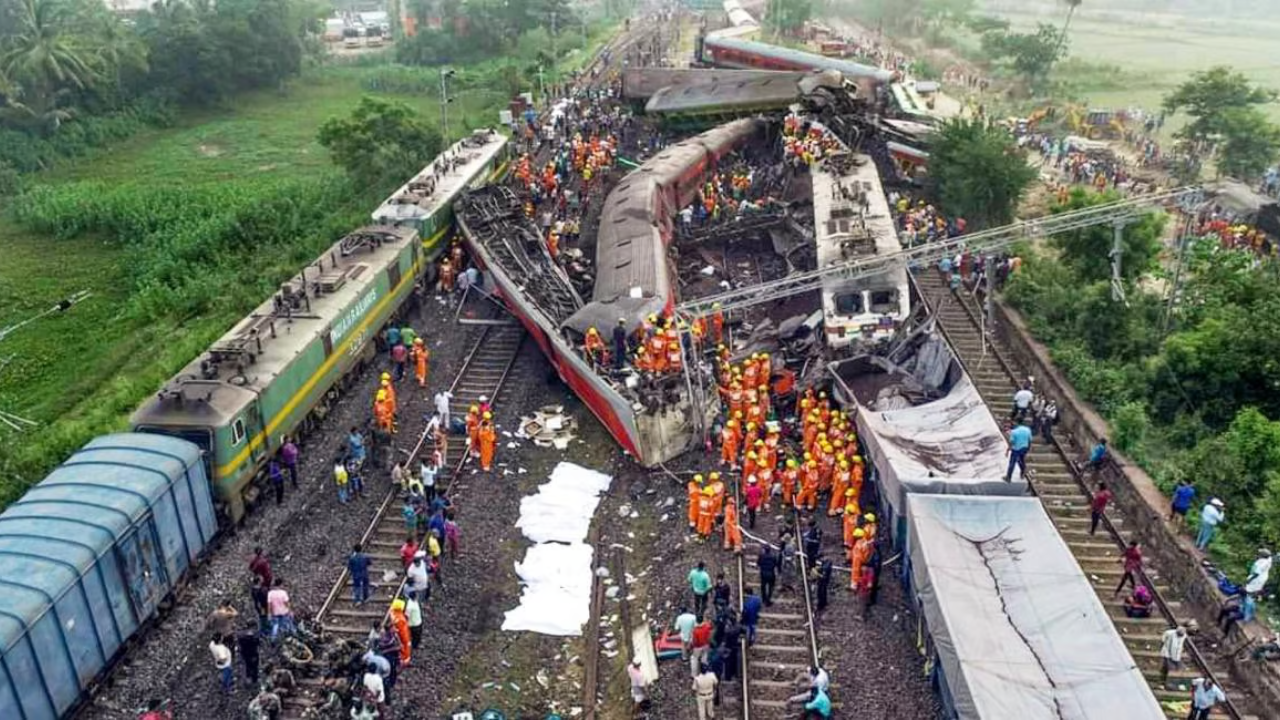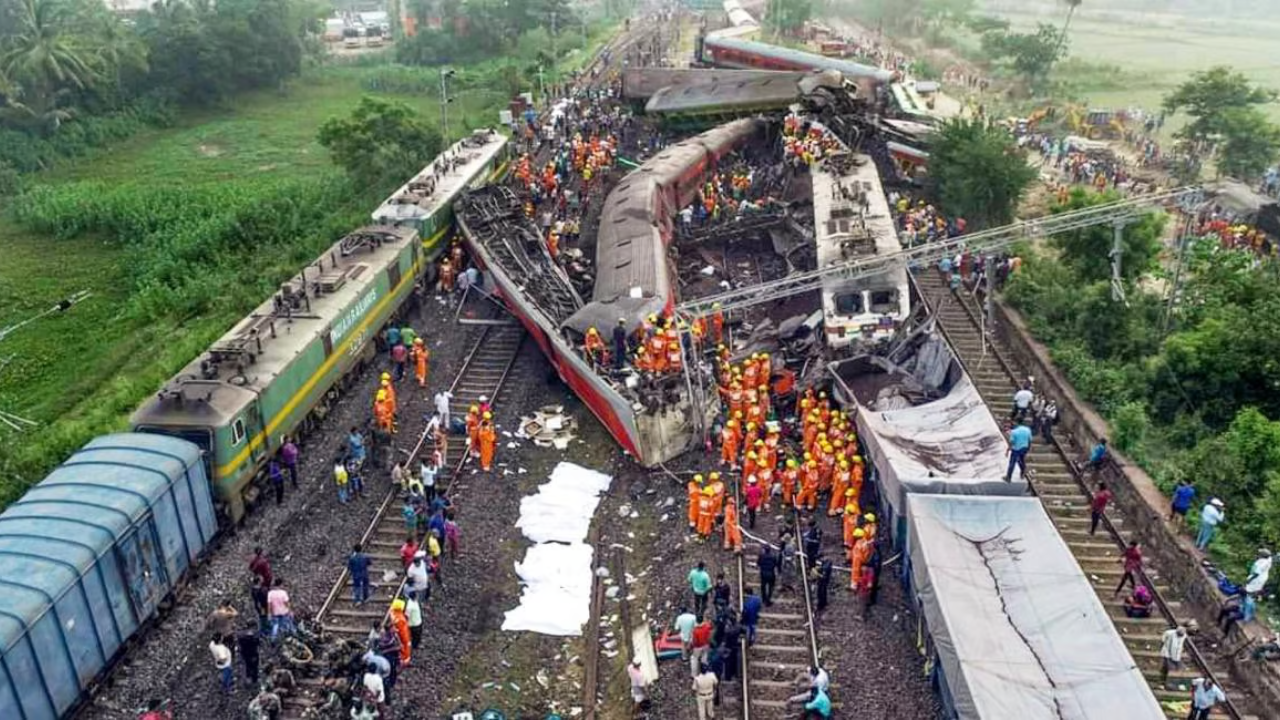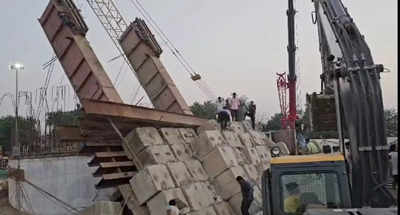Kanchangunja Express accident: Drivers of goods train had 30 hours of rest, hit emergency brakes before crash | India News

[ad_1]
NEW DELHI: The Commissioner of Railway Safety (CRS), probing the reason behind Kanchanjunga Express’s fatal collision with a goods train, shared provisional findings highlighting multiple lapses in the signalling and operating procedures that led to the accident.
In the findings released on Tuesday, it has been mentioned that the loco pilot and assistant loco pilot of the goods train, which rammed into Kanchanjugha Express killing ten people, had taken a rest for over 30 hours.
It has been found in the probe that the goods train was moving at the speed of 75 kmph when the driver applied an emergency break to bring it down to 40 kmph just before the collision.
The CRS identified that a “wrong paper authority” or T/A 912 to cross defective signals had been issued to the loco pilot of the goods train involved in the crash. The paper authority failed to specify the speed the goods train should adhere to while crossing the defective signal.
In the investigation, it was found that besides the Kanchanjunga Express and the goods train, five other trains had entered the section after the signals became defective until the accident occurred.
The CRS noted that despite issuing the same authority, different speed patterns were followed by the loco pilots, with only the Kanchanjunga Express adhering to the norm of moving at a maximum speed of 15 kmph and stopping for one minute at each defective signal.
The CRS emphasised the inadequate counselling of loco pilots and station masters regarding train operation in automatic signalling territory, creating misinterpretations and misunderstandings of rules.
The incident was classified under the “Error in Train Working” category.
In the probe report, the commissioner has also listed recommendations for the Railway Board, which include bringing uniformity in the standard operating procedure (SOP) for giving paper permits in case of automatic signal failure.
It has recommended expediting the rollout of the Kavach mechanism, an anti-collision system which is installed in trains to avert accidents.
The report also said that frequent failure of automatic signalling systems is a matter of great concern and needs quick resolution.
Ten passengers died and 41 were injured when a fast-moving goods train rear-ended the Kolkata-bound Kanchenjunga Express near Siliguri in north Bengal on June 17 morning.
Six of the ten who lost their lives were in the fourth-last bogie, a general compartment. The other three dead were the loco pilot of the goods train; the guard of the passenger train; and a Railway Mail Service official.
In the findings released on Tuesday, it has been mentioned that the loco pilot and assistant loco pilot of the goods train, which rammed into Kanchanjugha Express killing ten people, had taken a rest for over 30 hours.
It has been found in the probe that the goods train was moving at the speed of 75 kmph when the driver applied an emergency break to bring it down to 40 kmph just before the collision.
The CRS identified that a “wrong paper authority” or T/A 912 to cross defective signals had been issued to the loco pilot of the goods train involved in the crash. The paper authority failed to specify the speed the goods train should adhere to while crossing the defective signal.
In the investigation, it was found that besides the Kanchanjunga Express and the goods train, five other trains had entered the section after the signals became defective until the accident occurred.
The CRS noted that despite issuing the same authority, different speed patterns were followed by the loco pilots, with only the Kanchanjunga Express adhering to the norm of moving at a maximum speed of 15 kmph and stopping for one minute at each defective signal.
The CRS emphasised the inadequate counselling of loco pilots and station masters regarding train operation in automatic signalling territory, creating misinterpretations and misunderstandings of rules.
The incident was classified under the “Error in Train Working” category.
In the probe report, the commissioner has also listed recommendations for the Railway Board, which include bringing uniformity in the standard operating procedure (SOP) for giving paper permits in case of automatic signal failure.
It has recommended expediting the rollout of the Kavach mechanism, an anti-collision system which is installed in trains to avert accidents.
The report also said that frequent failure of automatic signalling systems is a matter of great concern and needs quick resolution.
Ten passengers died and 41 were injured when a fast-moving goods train rear-ended the Kolkata-bound Kanchenjunga Express near Siliguri in north Bengal on June 17 morning.
Six of the ten who lost their lives were in the fourth-last bogie, a general compartment. The other three dead were the loco pilot of the goods train; the guard of the passenger train; and a Railway Mail Service official.




